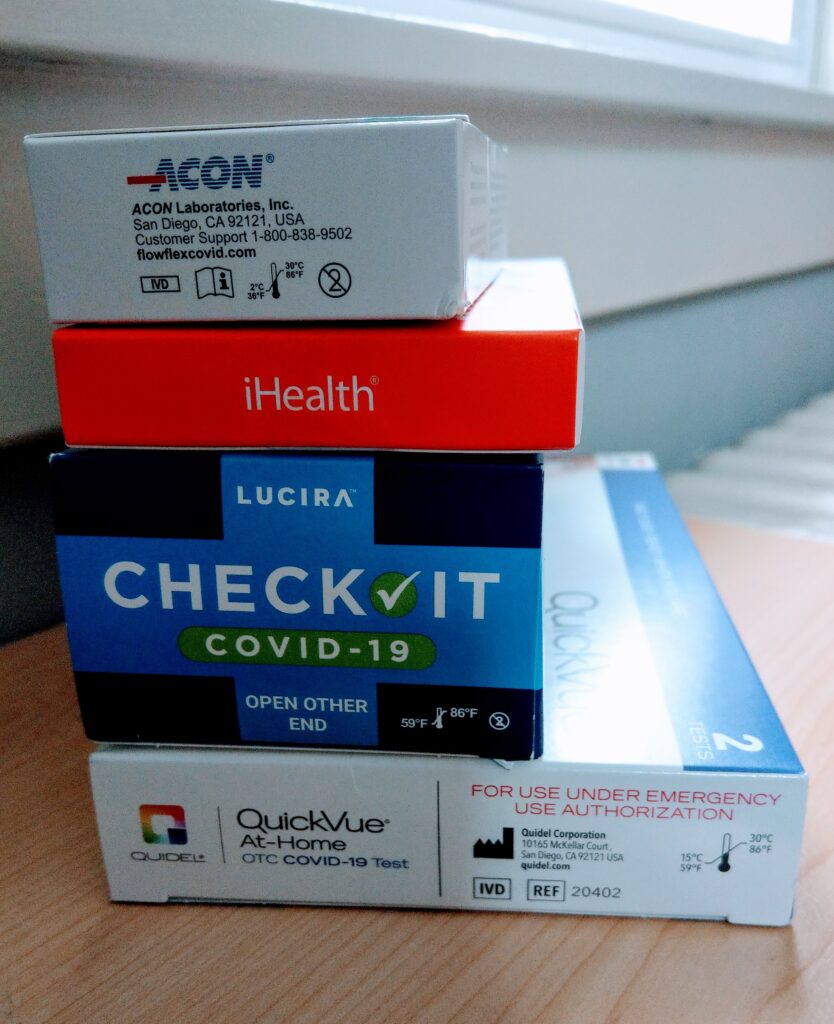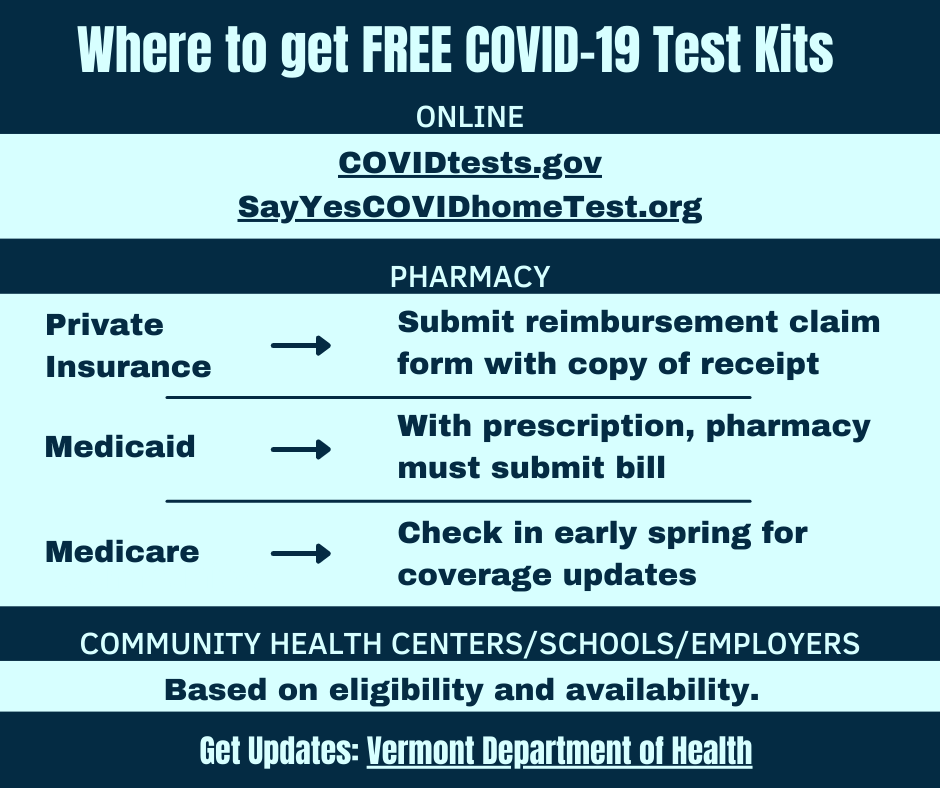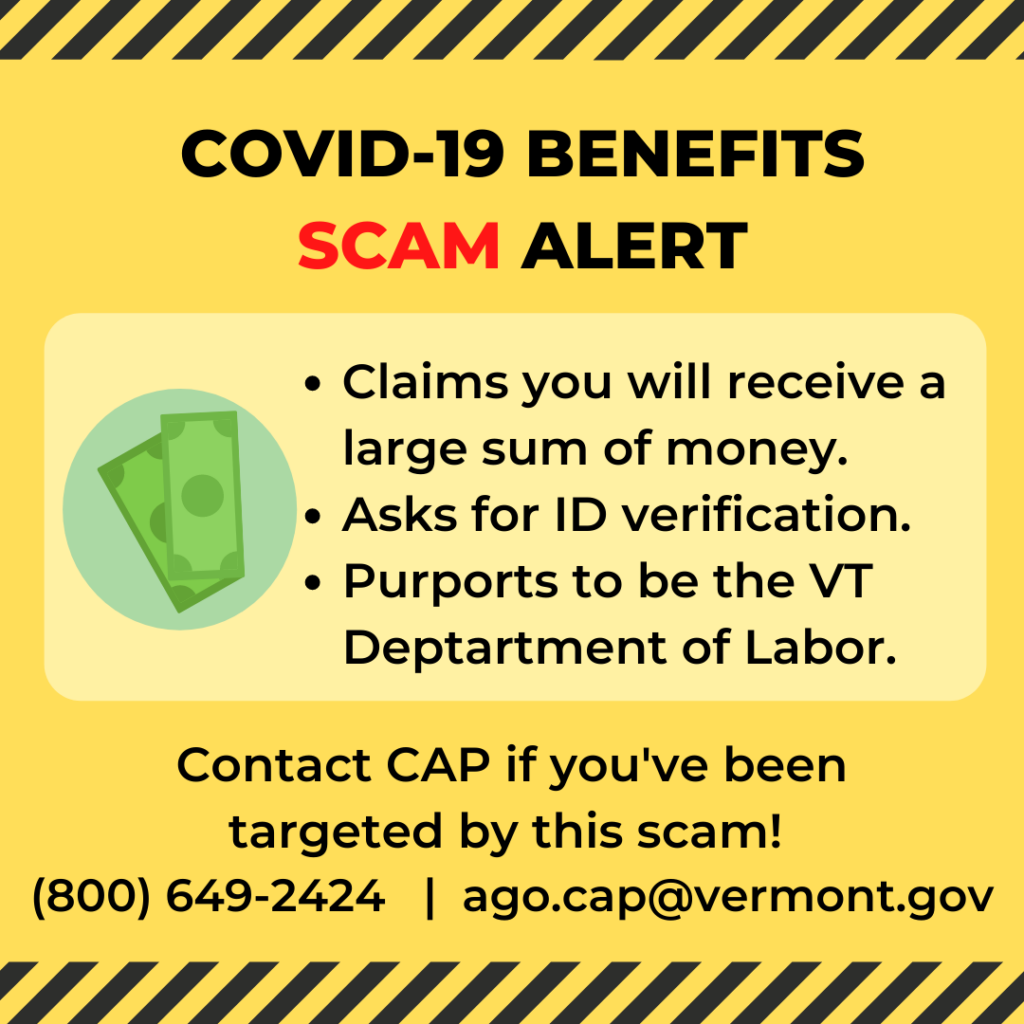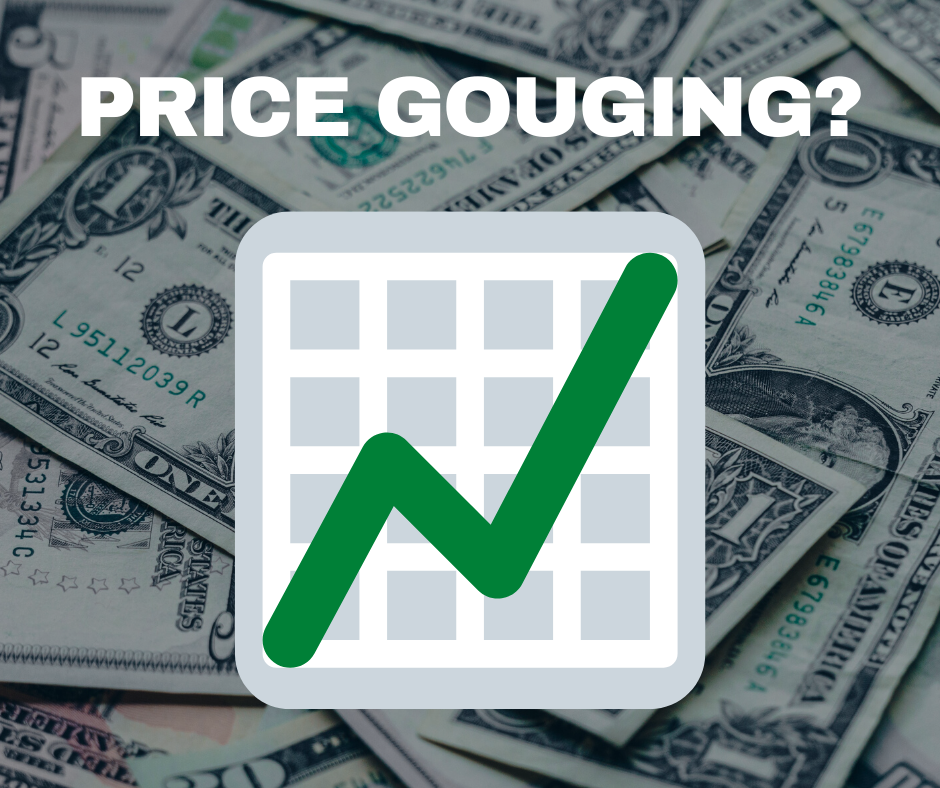By Crystal Baldwin and Cristina Leiva
A National Consumer Protection Week feature and second in a Two-Part Series on COVID-19 Test Kits. “National Consumer Protection Week (NCPW) is a time to help people understand their consumer rights and avoid frauds and scams” (FTC).
Earlier this week, it was announced that Americans can order more free at-home COVID-19 tests from the U.S. government at COVIDtests.gov. This second round of tests are available for free through COVIDtests.gov. There are no shipping costs, and you don’t have to give a credit card or bank account number. You only need to give a name and address. Once you place an order, you’ll get an order confirmation number. If you give your email address, you’ll also get an order confirmation email and delivery updates. Anyone who asks for more information than that is a scammer.
Don’t get scammed when doing your part to get tested!
Scammers love when things are offered for free because they can quickly create a website making the same claim, while requiring personal information and payment for additional charges like “shipping/handling” or “expediting” or “priority service”. They seize the opportunity to cash in when emotions are high—which is the case when trying to stay healthy amid a global pandemic.
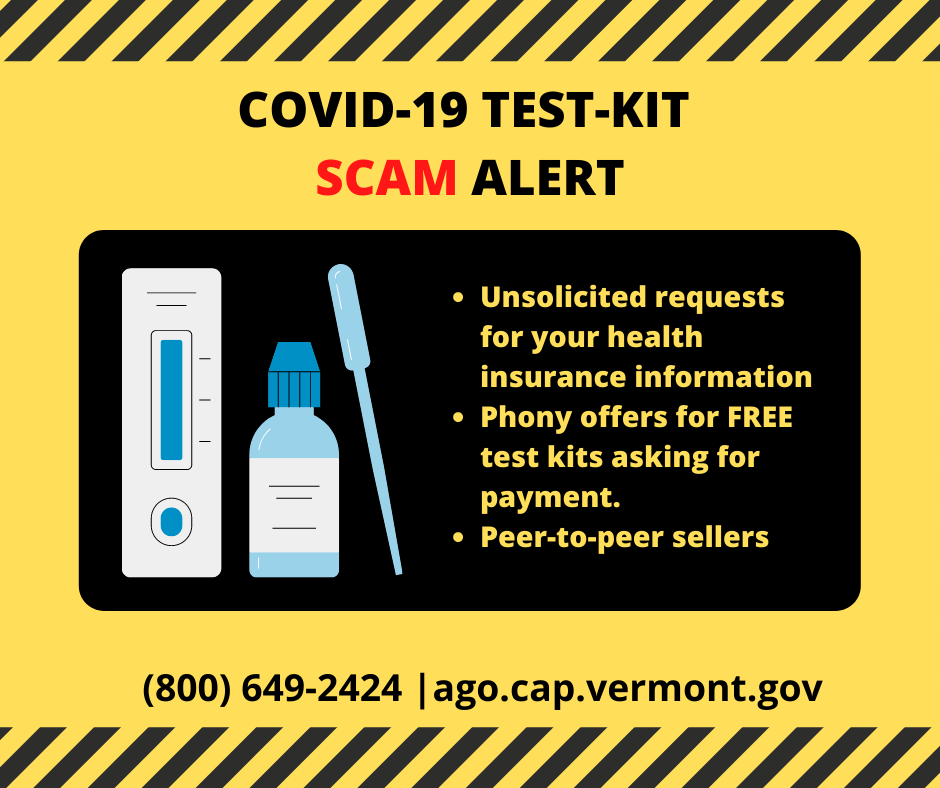
COVID-19 Test Kit Scams Might Look Like:
- Unsolicited requests for your health insurance information, such as Medicare, in exchange for free test kits.
- Phony offers of FREE test kits with payment required, such as for shipping/handling.
- Peer-to-peer sellers: Friends, family, neighbors and others on Facebook Marketplace and Craigslist and other listing sites.
- Unreputable vendors in retail pop-up shops or online.
- The sale of invalid COVID-19 test kits.
- Unsolicited offers to obtain free test kits, such as through telemarketing, email, and other unverified channels.
Hang up on solicitations claiming to offer free test kits in exchange for your personal information, insurance, or money! If you are looking for free test kits, seek them out through valid sources outlined in the Consumer Assistance Program’s free COVID-19 test kits blog.
Look out for these red flags:
- Requests to pay a fee for free tests.
- Claims of expedited delivery with additional payment.
- Receiving results after you sign up and pay, but before you’ve been tested.
- Tests that are not FDA authorized.
If you have encountered a free COVID-19 test scam, report it to the Consumer Assistance Program (CAP) through CAP’s online scam reporting form.
Regarding COVID-19 updates and information, the best place in Vermont to check is the Vermont Department of Health.
Resources: COVIDtests.gov, Vermont Department of Health

